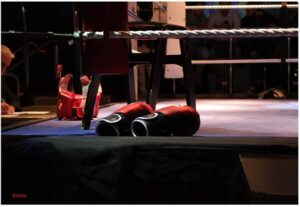WHAT HAPPENS:
The Brain is cushioned with fluid and protective membranes, typically enough to keep safe, but with direct hits the head can be pushed to the side, or shaken, causing impacts such as Bruising, Nerve Tissue Damage, and Impairment of cell function
SIGNS:
- Headache / Pressure
- Dizziness
- Ringing in ears
- Nausea and vomiting
- Slurred speech
- Extreme fatigue
MENTAL SIGNS:
- Temporary loss or altered state of consciousness
- Confusion
- Amnesia surrounding event
- Delayed response to questions or dazed
- Irritability or personality changes
- Sleep disturbances
- Concentration & Memory
IN CHILDREN:
- Dazed
- Irritable
- Uneasy on feet
- Excessive crying
- Loss of interest in toys
- Eating & sleep disturbance
WHAT TO DO NEXT:
As with any uncertainty, always seek medical attention if there are concerns, as soon as possible and within 48 hours, and be mindful that secondary injuries during concussion are possible
SECONDARY INJURIES:
- Inflammation
- Releasing radicals into brain – they support brain cells, but excess radicals can damage structure, cause Parkinson’s and even death
- Ion Imbalance – Ions are molecules trafficked through the cell membranes helping nutrients to flow. They help move waste out of cells, and nerves, muscles, heart and brain to work as they should
SIGNS FOR EMERGENCY ATTENTION:
- Vomiting Repeatedly
- Headache that gets worse
- Loss of consciousness for more than 30 seconds
- Changes in behaviour, physical and mental
- Speech difficulty
WAYS TO TEST:
- Test Hearing, Vision and Reflexes
- Ask questions to determine strength of mind and memory span
- Request light physical activity, or movement to test balance and co-ordination
RISK FACTORS FOR DELAYED RECOVERY:
- Post traumatic Amnesia
- Cognitive Problems
- Difficulty in Concentrating longer than 3 hours
- Extreme confusion & memory problems
- History of previous concussion
- Type of sport, activity, style and position played
- Post traumatic migraine symptoms
- Returning to sport before recovery
If there is any uncertainty – Image testing is carried out usually with an MRI Scan / CT Scan for bruising or bleeding
TREATMENT:
- Rest for 1 week
- Refrain from activity
- Reduce mental strain, activities that require thought, such as reading, school work
- Use Paracetamol and avoid aspirin and ibuprofen which could increase the risk of bleeding
Secondary impact syndrome can occur if not recovered and can cause weeks / months of headaches
THINGS TO REMEMBER:
Those who have previously suffered concussion are 3 times more likely to suffer concussion again because athletes often return to same sport, the brain is left weakened and more susceptible due to previous concussion
Concussion usually is mild and clears in time, as with any uncertainty always seek professional medical advice
REDUCING RISK:
- Wear Protective equipment where possible. Headgear, Padding, Mouth Guards
- Seek treatment immediately
* Information sourced from (CWU) 2023



